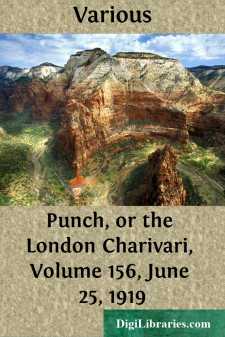Categories
- Antiques & Collectibles 13
- Architecture 36
- Art 48
- Bibles 22
- Biography & Autobiography 816
- Body, Mind & Spirit 145
- Business & Economics 28
- Children's Books 18
- Children's Fiction 14
- Computers 4
- Cooking 94
- Crafts & Hobbies 4
- Drama 346
- Education 58
- Family & Relationships 59
- Fiction 11831
- Foreign Language Study 3
- Games 19
- Gardening 17
- Health & Fitness 34
- History 1378
- House & Home 1
- Humor 147
- Juvenile Fiction 1873
- Juvenile Nonfiction 202
- Language Arts & Disciplines 89
- Law 16
- Literary Collections 686
- Literary Criticism 179
- Mathematics 13
- Medical 41
- Music 40
- Nature 179
- Non-Classifiable 1768
- Performing Arts 7
- Periodicals 1453
- Philosophy 66
- Photography 2
- Poetry 897
- Political Science 203
- Psychology 45
- Reference 154
- Religion 516
- Science 126
- Self-Help 86
- Social Science 82
- Sports & Recreation 34
- Study Aids 3
- Technology & Engineering 59
- Transportation 23
- Travel 463
- True Crime 29
Our website is made possible by displaying online advertisements to our visitors.
Please consider supporting us by disabling your ad blocker.
Punch, or the London Charivari, Volume 156, June 25, 1919
by: Various
Categories:
Description:
Excerpt
GOING TO THE BANK.
She thought she had got a bargain. It was only marked "20/-," and would have been double the price at any of the West-end places. So she whipped out her Japanese note-case, paid for it, and carried it off like a whirlwind lest the shopman should find he had made a mistake.
But it was she who had made a mistake, and she broke the news to me at breakfast on the following morning.
Two of her one-pound notes (or, to be exact, my one pound notes) must have stuck together. She had paid the West-end price after all.
Then, instead of blaming her own carelessness, as I should have done, what must she do but attack Mr. LLOYD GEORGE?
"It's all his fault, this horrid dirty paper-money... Spreading infection wherever it goes!"
It devolved upon me to defend the Government, which I did with some heat, drawing forth another one-pound note casually, as though I were made of them, and flourishing it in my hand.
"And anyway," I argued, "Mr. LLOYD GEORGE is not to blame. The note does not bear his signature, but that of Sir JOHN BRADBURY. And a fine bold signature it is—why, it's dirt-cheap for the lesson in handwriting alone."
She did not appreciate that, because hers is a small scrabbed writing. But I continued mercilessly—
"I bet he doesn't bite his lips when he's signing his name."
"Extremely bad writing, I should call it," she retorted. "Look, you cannot tell where the 'u' ends and the 'r' begins."
"But aside from that," I resumed (I was very proud of this expression, having picked it up from President WILSON)—"aside from that, turn the note over, feast your eyes on the picture of the Houses of Parliament. It too is thrown in for nothing. This at least ought to appeal to you, with your enthusiasm for Gothic architecture."
If looks could annihilate, that would have been my last boiled egg.
"You think yourself very clever," she said, "and you are supposed to understand all about money matters. Surely you know of a bank where I can take these wretched notes and get gold instead, the good old English gold that was worth its face-value all the world over?"
I did not know she could be so eloquent. I rose and went to the window. It was a noble morning.
"Yes," I said after a little reflection, "put on your best hat and collect your paper-money. But try and pack it all into the kit-bag if you possibly can." (She winced a little.) "I know a bank where you will be able to get all the gold you want...."
Shoulder to shoulder we fought the good fight for the motor-bus.
"Two to the Bank," I gasped.
But it was at Charing Cross station I made her descend. She looked extraordinarily mystified, and I explained that the Bank's country branches are the only ones where gold is still to be had.
She and an empty milk-can and I were all that got out at the little station in the hills. However, a cuckoo introduced himself boldly by name. He seemed so near he might have been in the booking-office. But the booking-office was deserted.
"There can't possibly be a bank in this out-of-the-world place," she protested....












